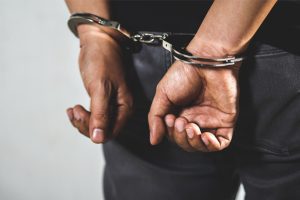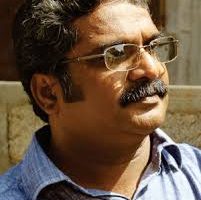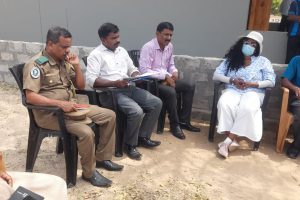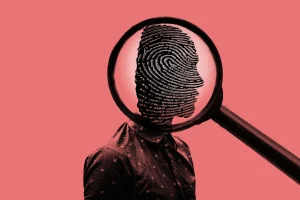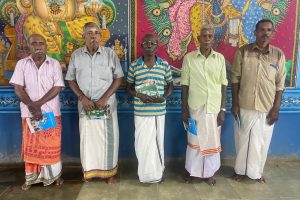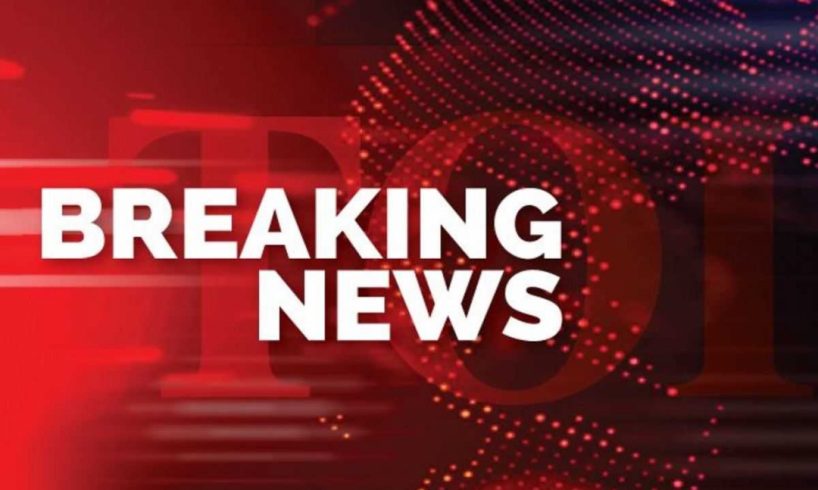
வலிந்து காணாமல் ஆக்கப்பட்டமையும் திட்டமிட்ட இன அழிப்பின் ஓர் அங்கம் என வலிந்து காணாமல் ஆக்கப்பட்ட உறவுகள் அமைப்பின் இணைப்பாளர் பத்மநாதன் கருணாவதி தெரிவித்துள்ளார். அவர் ஐநாவுக்கு அனுப்பிய செய்திக் குறிப்பிலேயே இவ்வாறு குறிப்பிட்டுள்ளார் இது தொடர்பில் மேலும் குறிப்பிட்டுள்ளதெவது.
வலிந்து காணாமல் ஆக்கப்பட்டமையும் திட்டமிட்ட இன அழிப்பின் ஓர் அங்கம். வெளிநாட்டு அமைச்சர் பீரிஸ் அதன் கனதியை நீர்த்துப்போகச்செய்யவே எண்ணிக்கையைக் குறைக்கும் விசமத் திட்டத்தில் ஈடுபடுகிறார். இதை மனித உரிமை உயர்ஸ்தானிகர் ஆமோதிப்பதா? கூடாது என பச்சலற் அம்மையாருக்குக் காட்டமான திறந்த மடல்
கடந்த 2000-2021 வரையான இருபது வருட காலப்பகுதியில் ஏறத்தாழ ஆறாயிரம் காணாமலாக்கப்பட்டோர் பற்றிய விபரக் கோவையைத் தற்போது ஒப்புநோக்கி உறுதிப்படுத்தி வெளியிட இருப்பதாக இலங்கை அரசின் வெளிநாட்டு அமைச்சர் பேராசிரியர் ஜி. எல். பீரிஸ் ஜெனீவா ஐ.நா. மனித உரிமை உயர்ஸ்தானிகரின் வாய்மூல அறிக்கைக்கு முன்பதாகத் தகவல் வழங்கியிருக்கிறார். அதுவே குறைந்த ஒரு எண்ணிக்கை. அதைக்கூட நான்காயிரத்துக்கும் அல்லது அதற்கும் குறைவாகக் காட்ட முனையும் ஒரு கண்துடைப்பு நாடகத்தை அவர் ஆரம்பித்திருப்பதை எவ்வாறு மனித உரிமை உயர்ஸ்தானிகர் ஆமோதிக்கமுடியும் என்று நேற்று 2021 செப்ரம்பர் 15ம் திகதி புதன்கிழமை காட்டமான திறந்த மடல் ஒன்றை வலிந்து காணமால் ஆக்கப்பட்டவர்களின் உறவினர்களின் அமைப்பு உயர்ஸ்தானிருக்கு அனுப்பிவைத்துள்ளது.
ஆங்கில மொழியில் இரண்டுபக்கங்களில் வரையப்பட்ட அந்த மடலில் மேலும் சுட்டிக்காட்டப்பட்டவையும், கோரிக்கையாக முன்வைக்கப்பட்டவையுமான விபரங்களின் சுருக்கம் வருமாறு:
இலங்கை அரசு திட்டமிட்ட இன அழிப்பையே வடக்கு-கிழக்கில் தமிழ் மக்களுக்கு எதிராகப் புரிந் துள்ளது. அதன் ஒரு அங்கமாகவே கடந்த இருபது வருடங்களுக்குள் மாத்திரம் குறைந்தது 15,000 தமிழர்கள் அரச படைகளினாலும் அவர்களால் இயக்கப்பட்டவர்களாலும் வலிந்து காணாமலாக்கப்பட்டனர். இவர்களில் பெரும்பாலானோர் அப்பாவிகள் என்பது மட்டுமல்ல 95 வீதமானோர் 16 வயதுக்கும் 35 வயதுக்கும் இடைப்பட்ட ஆண்கள் ஆவர். இது ஒரு திட்டமிட்ட இன அழிப்புச் செயல். இந்தத் தொகையைக் குறைத்துவிட இலங்கை அரசு முயற்சிக்கிறது. இதை எவ்வாறு ஐ.நா. மனித உரிமை உயர்ஸ்தானிகர் பீரிஸை ஆமோதிப்பதன் மூலமும் காணாமல் போனோர் ஆட்கள் பற்றிய அலுவலகப் பொறி முறையை வரவேற்பதன் மூலமும் அங்கீகரிக்கமுடியும்?
இதற்கும் அப்பால், ஆறுமாதங்களுக்கு முன்னர் உள்ளகப் பொறிமுறை படுதோல்விகண்டுவிட்டது, எனவே ஐ.நா. உறுப்புரிமை நாடுகள் குற்றவாளிகளை சர்வதேசக் குற்றவியல் நீதிமன்று போன்ற சர்வதேச விசாரணைப் பொறிமுறைகள் ஊடாக விசாரிக்க ஆவன செய்யவேண்டும் என்று கடுமையாகப் பிரேரித்து விட்டு அடுத்த சில மாதங்களுக்குள் தீவில் மனித உரிமைகள் சீரழிந்து செல்லும் நிலையிலும் கொழும்பு அரசாங்கத்தின் உள்ளகப் பொறிமுறையை ஆமோதிக்கும் நிலையை உயர்ஸ்தானிகர் எவ்வாறு கைக்கொள்ளலாம்?
இலங்கை அரசிடம் ஐ.நா. தன்னிடமிருக்கும் காணாமலாக்கப்பட்டோர் தொடர்பான முறையீடுகளை ஏன் ஒப்படைத்தது? இது உறவினர்களுக்கு ஆபத்தானது. இலங்கையின் வடக்கு-கிழக்கில் இருந்து இராணுவத்தை முற்றாக அகற்றவைத்து, ஐ.நா. மேற்பார்வையில் இங்கு பாதுகாப்பை உறுதி செய்தால் மாத்திரமே காணாமலாக்கப்பட்டோரின் விபரங்களை முழுமையாகத் திரட்டமுடியும்.
காணாமலாக்கப்பட்டோருக்கான நீதி சர்வதேச மட்டத்திலான சுயாதீன விசாரணை மூலம், அதுவும் இன அழிப்புக் குறித்த பார்வையுடனான விசாரணைக்கு உள்ளடக்கப்பட்டதாக, மியான்மார் மற்றும் சிரியா போன்ற நாடுகளுக்குக் கையாண்ட அதியுச்ச நிகழ்ச்சிநிரலுக்குள் வைத்து அணுகப்பட வேண்டும்.
எனவே, மனித உரிமைப் பேரவையின் அதியுச்ச நிகழ்ச்சிநிரல் நான்குக்குள் இலங்கையைக் கொண்டுவந்து அடுத்தகட்ட நடவடிக்கை முன்னெடுக்கப்படவேண்டும் என்று தீர்க்கமாகக் கோருகிறோம்.
இன அழிப்புக் குறித்த உண்மையைக் கண்டறியும் பணிக்குழு ஒன்றை நியமிக்கவேண்டும் என்றும் கோருகிறோம்.
பத்மநாதன் கருணாவதி
Ms. Michelle Bachelet
High Commissioner for Human Rights
Palais Wilson – United Nation
s Geneva, Switzerland
15 September 2021
Open Letter to the High Commissioner for Human Rights
Madam High Commissioner,
Re: Oral Update on the human rights situation in Sri Lanka by the UN High Commissioner for Human Rights at the 48th session of the UN Human Rights Council (UNHRC)
We regret to note that your oral update on Sri Lanka delivered on 13 September 2021 was a big disappointment to the Tamil victims of war in the North-East.
The unwarranted “acknowledgement” you extended to the Sri Lankan Foreign Ministry’s mischievous inputs submitted to you beforehand your oral update has seriously degraded the already precarious situation of the Tamil families of persons subjected to enforced disappearances in the North-East.
However, within 24 hours of your acknowledgement of the inputs from the Sri Lankan Foreign Minister, the very same person responded as follows: “We reject the proposal for any external initiatives purportedly established by Resolution 46/1 while domestic processes are vigorously addressing the relevant matters. This will polarize our society, as we experienced with Resolution 30/1.”
Six months ago, you said, “Domestic initiatives for accountability and reconciliation have repeatedly failed to produce results, more deeply entrenching impunity, and exacerbating victims’ distrust in the system,” and you recommended Member States to consider referring Sri Lanka to the ICC through the Security Council.
Only after six months since your substantial update on 36/1 and despite worsening conditions on the island, how could you acknowledge the inputs submitted by the Sri Lankan Foreign Ministry in the same manner time and again earlier?
Madam, the victims who have completely lost any hope in the domestic processes for decades, needed the UNHRC Resolutions, your monitoring and updates to ensure justice and accountability at an international level. Now, the UN Rights system has backtracked once again. Your office must be aware of the repeating saga of commissions and omissions by the successive presidents of Sri Lanka, which are well documented in the past. They have a particular purpose: to postpone and dilly dally any progress and buy time and space from the international community to do whatever the genocidal system in Colombo wishes to achieve on the ground in the North-East.
You have been dealing with the Sri Lankan state under wrong Agenda Item 2 instead of addressing the country under the stringent Human Rights situations that require the Council’s attention (Agenda Item 4). We are afraid that you have started paving the way for the Sri Lankan state to successfully build the case for slipping into the lowest Agenda Item 10 in the future.
We demand the OHCHR and the UNHRC address the root crime committed and continues to be committed against the Tamil people on the island. The root crime is genocide. It must be addressed under the most rigid Agenda Item 4. Your office must not be waylaid into justifying escape routes for the genocidal state.
As victims, we have decided to demand the highest level of scrutiny from the Human Rights Council as it has considered Myanmar, Burundi, North Korea, South Sudan and Syria under Agenda Item 4 earlier without the consent of the country concerned. The UNHRC must upgrade the Agenda Item and appoint a new independent international fact-finding mission to determine the root crime of genocide.
What we need is accountability for genocide and nothing else. The state that committed genocide would always try to avoid whatever it could do to prevent that. The Sri Lankan state is precisely doing that through Minister G.L. Peiris. There has been no transition in the underlying conflict, even though a genocidal onslaught ended the war in 2009. The conflict has not ended for a transitional justice mechanism to get applied in a post-conflict sense. The protracted genocide is going on in the North-East, and the spectre of physical genocide looms again.
Finally, we want to contradict the figures provided by the Minister, acting to deceive your office into reducing the numbers of the people subjected to enforced disappearances.
In categorising the groups into three phases, Minister Peiris portrays only around 6,025 cases in the first phase or priority between the last twenty years, 2000-2021. He also states that the UN Working Group on Enforced or Involuntary Disappearances (WGEID) had submitted 6,259 alleged cases as of July 2021. He also says that these WGEID data contains overlaps and that the data needs to be verified.
We wish to point out that between 2000-2007 more than 5,000 Tamils were subjected to enforced disappearances at the hands of the Sri Lankan military and the squads it operated. Then, between 2007-2015, more than 9,400 people were made to disappear by the same forces. Before these priority years, there were more than 1,340 persons between 1984-1994, more than 1,300 people between 1994-2000. There are at least 17,040 people subjected to enforced disappearances at the hands of the Sri Lankan forces and the squads it operated. Many people, particularly in the East, have avoided registering details, fearing reprisals from the military.
The Minister is trying to reduce the actual figures to below 4,000 for the period of the priority. In reality, the estimation for this category alone stands at a minimum of 15,000.
Most of those subjected to enforced disappearances were civilians, mostly youth and males between 16 and 35. We estimate that 95% of those abducted belong to this category. This act is nothing else than a crime of systematic extermination of a particular group, and that is what the Sri Lankan minister is hiding now. You are paving the way for his project through the acknowledgement.
The people in the North-East are afraid of delivering details while living under militarisation. Why did the UN system hand over the details of those subjected to the enforced disappearance to the offices of the genocidal state itself?
The international community must make the Sri Lankan State withdraw its military forces from the North-East and bring an UN-monitored security mechanism to enable the people to submit all details for credible and independent international investigations.
We thank you for your consideration of this letter.
Yours sincerely,
Pathmanathan Karunawathy
Director,
North & East Provinces of Sri Lanka Organisation of Relatives of Enforced Disappearance

